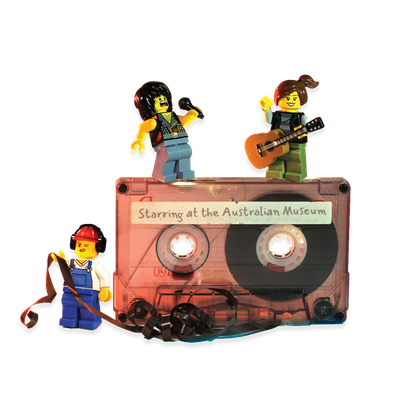Your search returned 83 results
By Page Type
By Tag
- All
- fish (966)
- blog (698)
- fishes of sydney harbour (400)
- First Nations (293)
- Blog (236)
- AMRI (169)
- archives (165)
- Aboriginal and Torres Strait Islander (135)
- Eureka Prizes (131)
- insect (126)
- Ichthyology (125)
- geoscience (109)
- minerals (102)
- climate change (98)
- podcast (94)
- Fish (91)
- Anthropology (89)
- International collections (80)
- Minerals Gallery (78)
- wildlife of sydney (78)
- Labridae (77)
- frog (73)
- gemstone (70)
- history (63)
- photography (63)
- staff (61)
- Mollusca (60)
- gem (59)
- Birds (58)
- education (57)
- Gems (56)
- Indonesia (56)
- AMplify (54)
- shark (54)
- people (53)
- exhibition (51)
- earth sciences (50)
- past exhibitions (50)
- Gobiidae (48)
- Pomacentridae (45)
- sustainability (45)
- Serranidae (44)
- science (43)
- lifelong learning (42)
- Earth and Environmental Science (41)
- Syngnathidae (41)
- Ancient Egypt (40)
- Bali (40)
- bird (40)
- dangerous australians (40)
-
Elbaite Tourmaline (Rubellite)
https://australian.museum/learn/minerals/mineral-factsheets/elbaite-tourmaline/This particularly large and colourful columnar crystal of rubellite tourmaline has an attached milky quartz crystal.
-
Adelie land meteorite
https://australian.museum/learn/minerals/mineral-factsheets/adelie-land-meteorite/This small meteorite (originally weighing one kilogram) was the first one discovered in Antarctica and was found by Francis Bickerton during Sir Douglas Mawson’s Australasian Antarctic Expedition of 1911–14.
-
Metamorphic rocks
https://australian.museum/learn/minerals/shaping-earth/metamorphic-rocks/Metamorphic rocks form because of changes in temperature and depth of burial within the Earth in a solid state without actual melting.
-
Find out more
Tails from the Coasts
Special exhibition
On now![]()
-
Find out more
Burra
Permanent kids learning space
10am - 4.30pm![]()
-
Discover more
RELICS
Special Exhibition
Opens 16 August 2025![]()
-
Discover more
Minerals
Permanent exhibition
Open daily![]()





